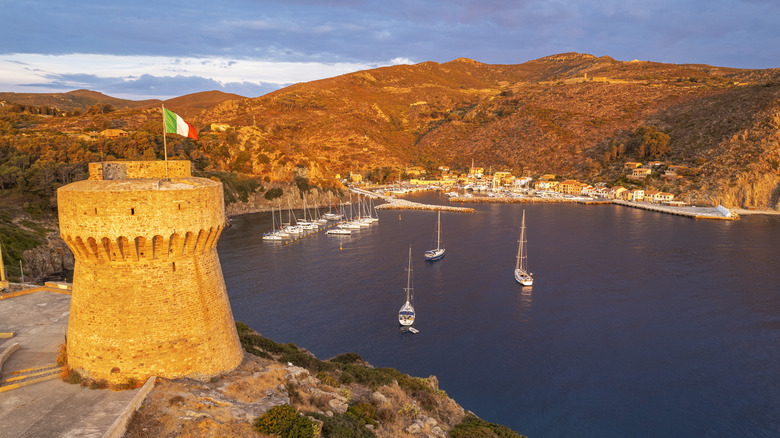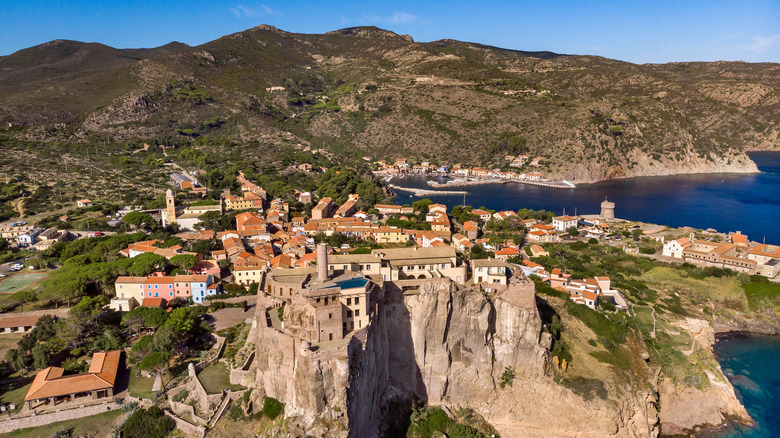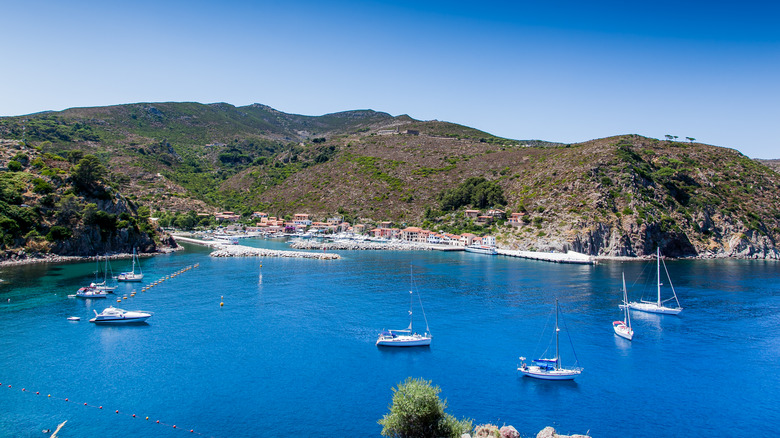You likely know the major tourist areas of Italy, from Rome and its surroundings to Pompeii, preserved forever after a volcanic eruption, or the Italian Alps and their stunning ski resorts. Certainly, you’ve heard of or been to Venice with its canals, and know about the art history explosion you’ll get in Tuscany. However, if what you really want to do on your Italian vacation is sit on a beach with a glass of white wine, condensation running down its side after a long, lovely hike around a beautiful, quiet island, we have just the Italian vacation spot for you.
This place is 34 miles off of the Tuscan coast of Italy. Basically, if you drew a straight line from Perugia to the west, you’d hit Isola di Capraia or Capraia Island. It’s part of an archipelago with crystal waters, pristine beaches, miles of walking and hiking trails, and — here’s the best part, folks — very few people. Let’s talk about Capraia, the trails you can trek, the beaches you can visit, and how to get there in the first place.
Getting to Capraia and getting around

Capraia was once a penal colony, which closed in 1986. (You can hike through the place now). These days, it’s perfect for a visit for some outdoor time and peace and quiet. There are usually around 400 residents here, though that fluctuates by season. It’s easy to get to, with ferries running four to five times a week from Livorno. The ferry costs around $28, and you can check the timetables before you go. It takes about three hours to get to the main port by Capraia village, often referred to as Paese. (The only other inhabited location on this island is the village of Porto — a 15-minute walk away.) From the port, you can take a bus for $1 to Paese. While you can take a car on the ferry, there is only one paved road, so walking is a better idea.
Paese has a bunch of little shops and restaurants, and it’s perfectly charming. Make sure to buy some of the local honey, as Capraia is known for its flora, like the strawberry trees (where you may see the beautiful Two-Tailed Pasha butterfly), maquis, and many lovely flowers. The scent of the myrtle trees alone is worth the trip.
The island is just 7.4 square miles, but there is plenty to do, like a visit to the Church and Convent of Sant’ Antonio from the 1600s or the Fortress of San Giorgio (1540) — a castle built on top of the old Castello Pisano (1200). During a renovation, there was even an old church discovered under its main floor.
Hiking and beaches on Capraia Island

Capraia Island is a prime destination if you love walking and hiking. There is even a lake to walk around, which isn’t usually found in this archipelago. You’ll likely see goats, mouflon sheep, and many, many birds. When you get to the island, you can grab a walking route map from local hotels or at the port, with something for every expertise level. Some of the paths are old mule tracks, so make sure to wear proper shoes. One loop that takes around an hour is called Reganico, which starts in Paese. The hike to the old penal colony begins near the port. In fact, there is a walking festival that takes place in May and October, which features guided walks if you prefer a group setting. (The end of October is also the delicious Squid Festival.)
If you visit Rosso Beach in the south, created by a volcanic cone (red in color, hence the name), you’ll get to see the Zenobito Tower (1545), which was one of four towers used to defend against pirates. You can also hike to the tower, though the beach itself requires a boat. Speaking of beaches, Ceppo Beach is on the east side, and its clear water is perfect for snorkeling. If you’re looking for something closer to the port, try San Francesco Beach near the San Antonio convent.

